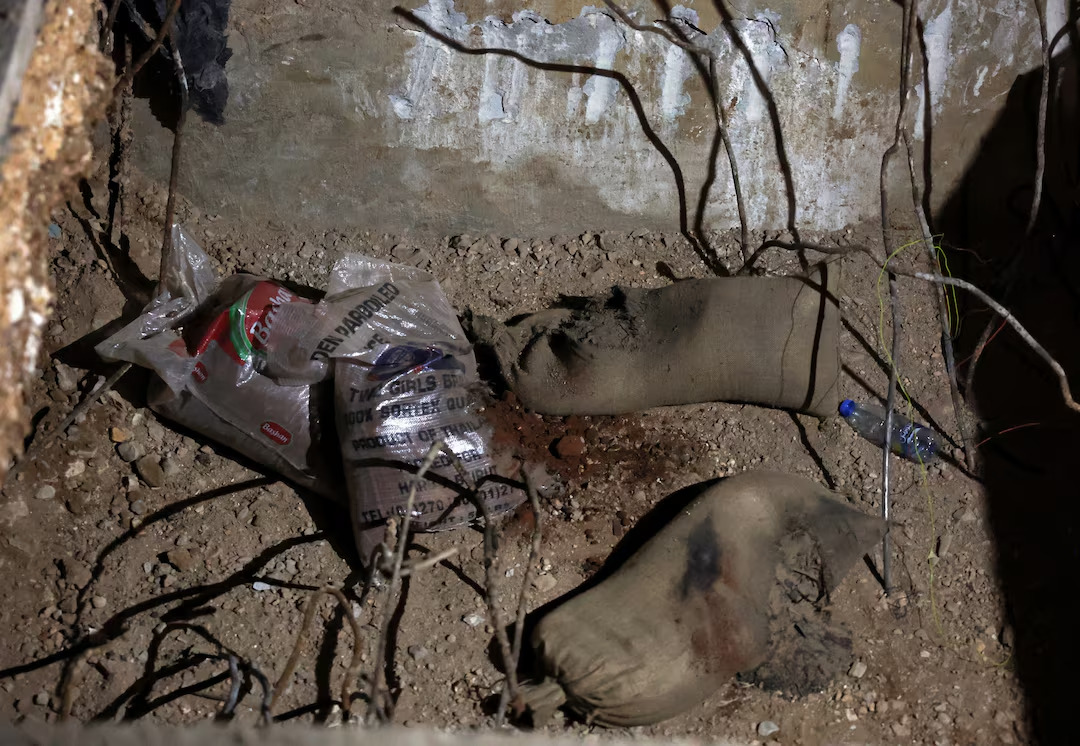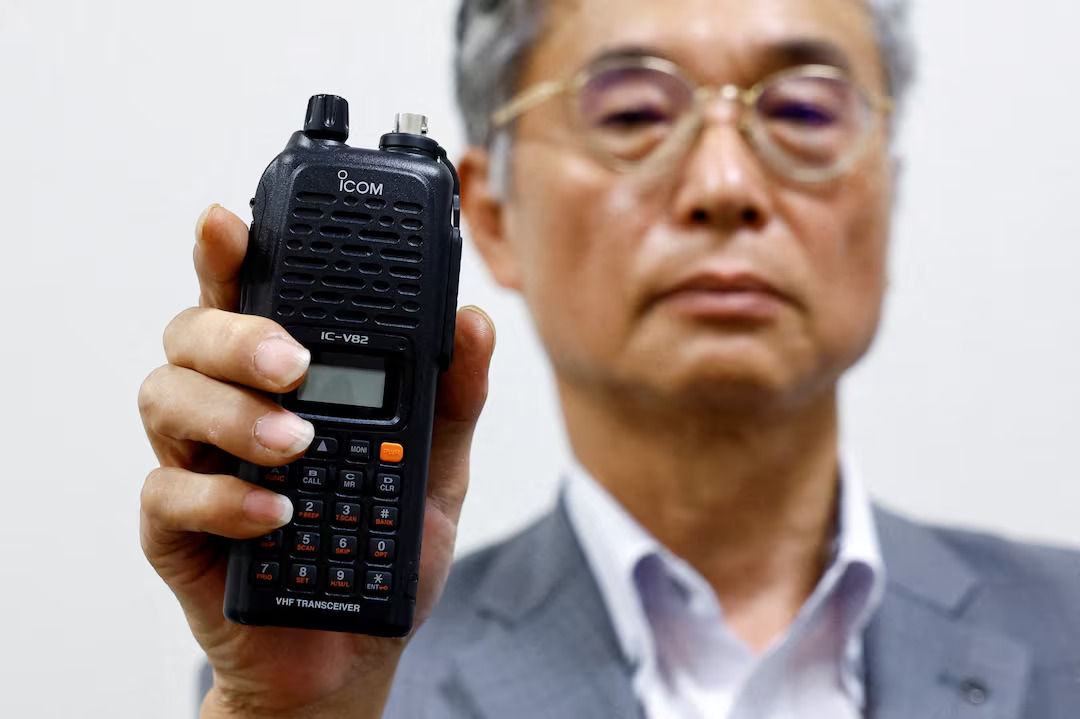While supply chains and distribution channels for new, high-margin products are tightly regulated, the supply chain for used electronics from Asia is not. Counterfeiting, excess inventory, and complex manufacturing contracts can make products extremely difficult to trace.
After an electronic device explosion killed 37 people and injured some 3,000 in Lebanon, the response from the companies responsible has highlighted the difficulty in determining how and when the devices were used as weapons. Taiwan-based Gold Apollo blamed a European licensee for the pager explosion, sparking investigations in Hungary, Bulgaria, Norway and Romania into the origins of the deadly devices.

Lebanese army tests explosive walkie-talkie device. Photo: Reuters
Difficult to determine the origin
Japanese radio transmitter/receiver maker Icom initially said it could not tell whether the radios bearing its logo were genuine, in a market flooded with counterfeits. It stressed that it was highly unlikely that the exploding products were its products.
Icom quoted Lebanese Telecommunications Minister Johnny Corm as saying that the devices were not imported through distributors, while counterfeit products with the same model numbers were being imported from other countries.
The Japanese manufacturer said it would need to physically inspect the explosive devices to conclude that they were not Icom products. Furthermore, given the various information that has been released, the possibility that they were Icom products was “extremely low.”
"If the supply chain is compromised to put explosives inside... that's incredible engineering. But in reality, compromising the supply chain is not that difficult, it's even the easiest part," said David Fincher, a technology expert in China.
Counterfeiting is widespread, especially in major manufacturing hubs like China where counterfeit components can be easily produced, he said, adding that it is easy to move from counterfeit components to compromising the supply chain.
"As a technology expert, I can confirm that putting a little explosive in a walkie-talkie is not difficult," he said.
Hezbollah purchased the devices about five months ago, thinking they were buying pagers from Gold Apollo, according to a security source. The devices, purchased at the same time as the pagers, bear the Icom logo and the phrase “Made in Japan,” the source said.
Both companies have denied that any of the deadly components were produced at their factories. Taiwanese officials have also said that the components used in the pager that exploded in Lebanon were not made in Taiwan.
According to a letter sent to the UN Security Council by the Lebanese mission to the UN, a preliminary investigation by Lebanese authorities into the devices found that explosives had been planted before they were brought into the country. However, it is unclear how the pagers and walkie-talkies were planted or how they were remotely detonated.
Counterfeit goods problem
Joe Simone, partner at Chinese intellectual property firm East IP, said smaller brands tend to invest less in counterfeit control, as the costs can impact their profits.
As for Icom, the company discontinued the IC-V82 model mentioned above a decade ago, around the time it began introducing 3D stamping as a safeguard against counterfeiting. The company has long warned about counterfeits, especially of older models.
In fact, according to the latest report from the Japan Patent Office, more than 7% of companies in Japan reported business losses due to counterfeit goods in 2020. Icom recommends that customers only use the official distributor network to ensure the purchase of genuine products.

Yoshiki Enomoto, director of Japanese radio equipment maker Icom, said their IC-V82 model device was discontinued in 2014. Photo: Reuters
But in China, there are dozens of stores selling Icom-branded radios on e-commerce platforms like Alibaba, Taobao, JD, and Pinduoduo, in some cases including the IC-V82 model.
Of the three China-based suppliers of Icom products on Alibaba, none are listed as official suppliers on Icom's website. Guangzhou Minxing Communications Equipment Co and Chengdu Bingxin Technology Co Ltd both said they sell genuine products, while Quanzhou Yitian Trading Co admitted to selling "Chinese-made counterfeits" in addition to genuine products.
“The widespread availability of cheap, second-hand manufacturing equipment means that counterfeiters can increasingly produce individual components and even complete products,” said Diganta Das at the University of Maryland, who studies counterfeit electronics. “I don’t call it counterfeiting anymore, it’s more like illegal manufacturing.”
Ngoc Anh (according to Reuters)
Source: https://www.congluan.vn/goc-toi-cua-chuoi-cung-ung-chau-a-qua-vu-tan-cong-thiet-bi-lien-lac-cua-hezbollah-post313503.html


![[Photo] Ha Giang: Many key projects under construction during the holiday season](https://vphoto.vietnam.vn/thumb/1200x675/vietnam/resource/IMAGE/2025/5/1/8b8d87a9bd9b4d279bf5c1f71c030dec)
![[Photo] Binh Thuan organizes many special festivals on the occasion of April 30 and May 1](https://vphoto.vietnam.vn/thumb/1200x675/vietnam/resource/IMAGE/2025/5/1/5180af1d979642468ef6a3a9755d8d51)































![[Photo] Feast your eyes on images of parades and marching groups seen from above](https://vphoto.vietnam.vn/thumb/1200x675/vietnam/resource/IMAGE/2025/4/30/3525302266124e69819126aa93c41092)

































































Comment (0)